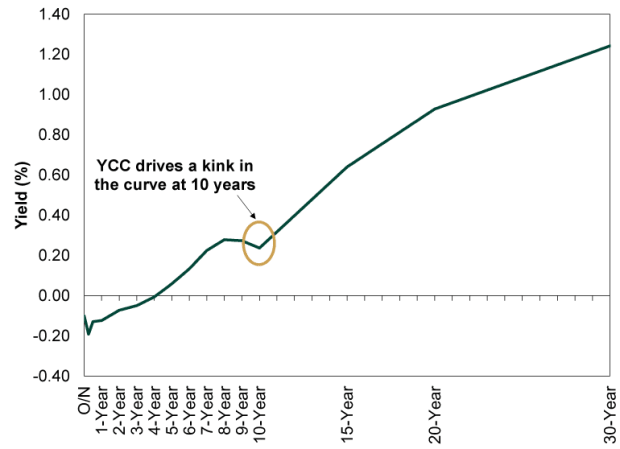Coinbase: Bitcoin Adoption on the Rise in the U.S.
Bitcoin adoption is on the rise in the U.S. as an increasing number of investors are turning to digital assets to add diversity to their investment portfolios, according to new research by Coinbase.
For the research, published as “The United States of Crypto,” the leading cryptocurrency exchange pulled data from a combination of public sources, anonymized Coinbase user activity and a study of 2,000 U.S. internet users conducted by YouGov.
Searching for Bitcoin
Over the past year, more people in the U.S. searched Google for “Bitcoin” than the “royal wedding” or “election results.” It even beat out searches for information on “Kim Kardashian,” according to the Coinbase research. YouTube searches for “Bitcoin” also reached their all-time high this year.
Currently, 58 percent of Americans say they’ve heard of Bitcoin, and 15 percent are “somewhat” or “very” likely to buy bitcoin or some other cryptocurrencies in the near future, the research found.
Investors cited several reasons for their participation: A desire to diversify their investments, the belief in the transformative potential of a secure and decentralized currency and the opportunity to educate themselves and experience new technology.
Formalizing Bitcoin Regulation
With interest and adoption increasing, more than 70 percent of American states have passed regulations addressing cryptocurrency or blockchain technology as of June 2019, the report notes.
For example, Wyoming passed a bill last year that allows banks to provide banking services to blockchain companies in the state. In New York, the state financial regulator has awarded 18 so-called BitLicenses to companies dealing with “virtual currency” since the regulations came into effect in August 2015. The most recent company to be granted the license is Bitstamp USA, Inc., a subsidiary of Luxembourg-headquartered cryptocurrency exchange Bitstamp Ltd.
Why Is Bitcoin Becoming More Popular?
Coinbase isn’t the only player in the space that has witnessed a notable surge in crypto awareness and adoption.
Sagar Chaudhary, junior analyst at global brokerage company eToro, told Bitcoin Magazine that “bitcoin is gradually, but most certainly going mainstream.” He noted that a lot of development has taken place in the cryptocurrency market since the 2017 rally, including more organizations coming forward and accepting bitcoin as a form of payment.
For Matthew Finestone, a chartered financial analyst and the director of business development at Loopring — an open-source protocol for building decentralized exchanges — awareness has crossed the “main street” tipping point and entered into the common lexicon.
“It’s very rare when I mention cryptocurrencies — especially bitcoin — that the person I’m speaking with has not, at the very least, heard of it,” Finestone told Bitcoin Magazine.
In particular, Finestone noted that prudent, global retail investors are increasingly viewing bitcoin as an attractive investment opportunity and a hedge against traditional markets.
“A ten-year testing ground has proven bitcoin is resilient, and importantly, an unassociated hedge to the volatility of our modern world and markets,” he said. “Bitcoin represents a more compelling and intuitive monetary experiment than the government monetary experiments, such as Modern Monetary Theory (MMT) and negative yielding sovereign bonds that we have been witnessing recently.”
One topic in particular upon which industry participants agree is the increase in institutional demand for bitcoin and other cryptocurrencies, leading, for instance, Fidelity to launch an institutional-grade cryptocurrency investment service in 2018, and Singapore-based cryptocurrency exchange Huobi to introduce its own over-the-counter (OTC) trading desk for institutional investors in May.
Meanwhile, Finestone stated that institutional investors have adopted two main strategies when it comes to crypto participation: defensive participation where professional asset allocators purchase bitcoin for the “just in case” scenario where the cryptocurrency “really takes off”; and offensive participation where institutions take an active and leading role in bitcoin investment, by creating, for instance, investment products or services around the technology, and trying to capture some extra revenue.
“Can you imagine a professional money manager telling clients they missed the whole move of the most groundbreaking monetary technology because they simply didn’t believe in it? It’s like hedging some career risk for them,” Finestone said. “The question for these investors to ask now, should not be ‘if’, but ‘how’; buy and hold bitcoin or ether, or invest in crypto-related companies, hedge funds, venture funds, etc.?”
Earlier this year, eToro released the findings of a survey conducted in 2018 which found that U.S. millennials are particularly fond of cryptocurrencies, some even trusting these more than U.S. stocks.
Forty-three percent of U.S. millennial online traders said they have less faith in the stock market than in crypto assets, 71 percent of millennials said they would invest in crypto if it was offered by traditional financial institutions and half of online investors expressed interest in a crypto allocation in their 401k plans.
The post Coinbase: Bitcoin Adoption on the Rise in the U.S. appeared first on Bitcoin Magazine.









